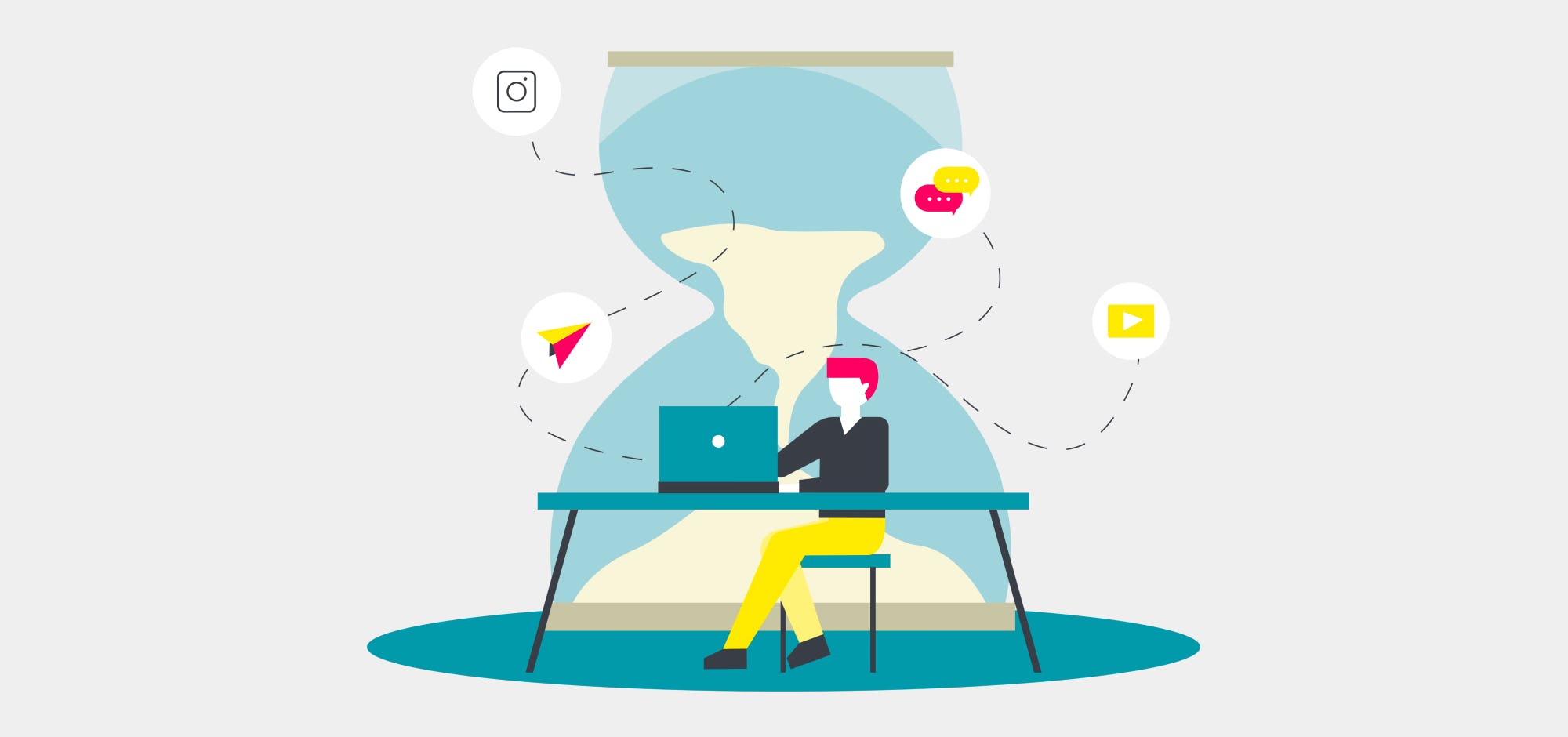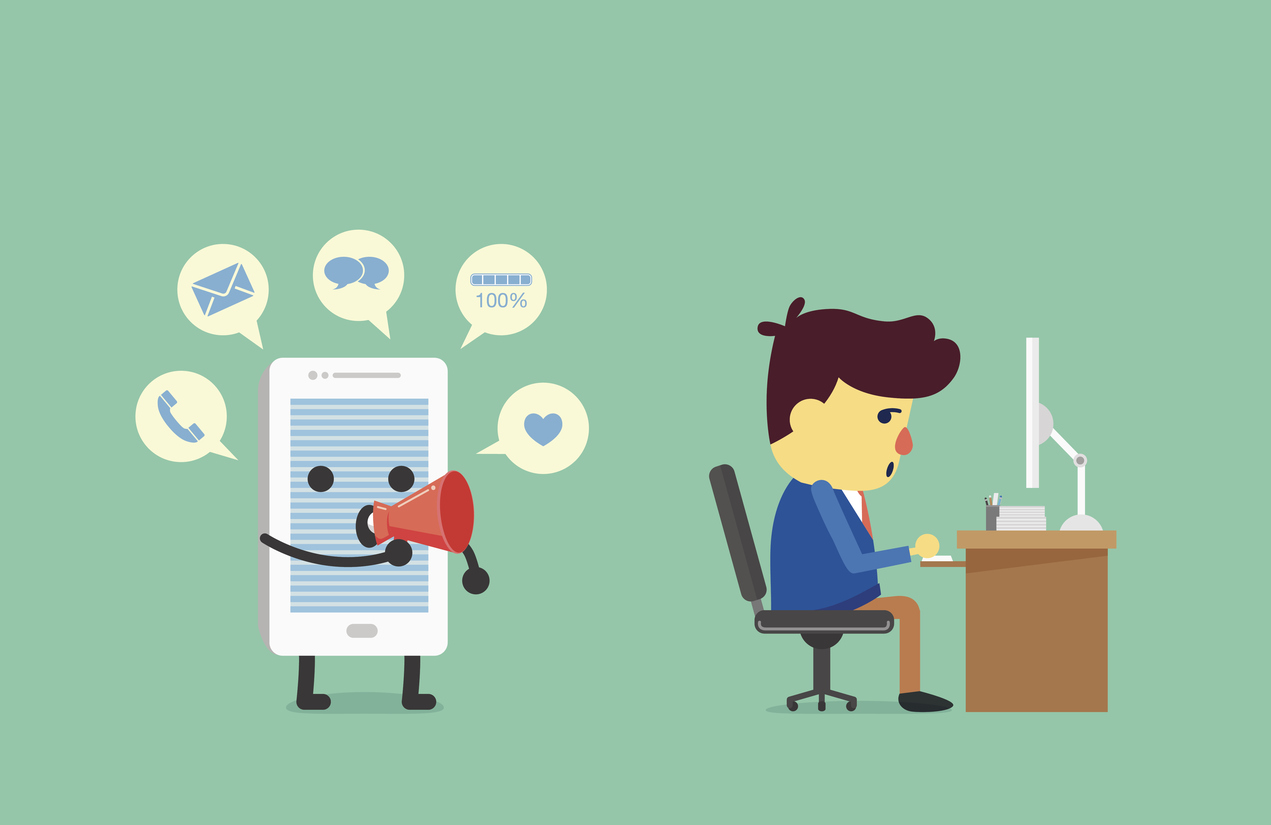TechInAfrica – We all experience distractions at least once a day in our daily lives. Even when you’re reading this article—and even when I’m writing this—we might get distracted by the things originally set aside to put our minds into focus. These distractions, more often than not, will potentially hinder your overall productivity when you’re working on something crucial. In a world full of distractions, it’s only feasible to stay concentrated to the task at hand rather than letting your mind wander off to nowhere. Not only it brings us closer to our desired objective, being focused also helps to put a disciplinary routine on our brains.
With the number of network tools and social media apps, our work and personal lives are competing for our attention; we are tempted to check our Twitter or Instagram every ten minutes just to see our friends’ recent updates. We want to do great work and get amazing results but then we’re struggling to focus on these tasks. Those who prevail to nurture their focus—all while staying unfazed beneath the temptation to lollygag—in completing their respective tasks, however, will thrive and achieve more in their lives.

According to Cal Newport, in his book titled Deep Work: Rules for Focused Success in a Distracted World, deep work is essential for staff, entrepreneurs, or even CEOs to create quality work and master difficult matters instead of the shallow ones. Amongst all the lessons in the book, few have been regarded as crucial aspects in building concentrated work, and here they are:
Work deeply
Okay, so let’s say you’re productive; but for what purpose? To achieve what objective? Cal, via his book, professed, “in the absence of clear indicators of what it means to be productive and valuable in their jobs, many knowledge workers turn back toward an industrial indicator of productivity: doing lots of stuff in a visible manner.”
In achieving the ideal state of deep working, try these following tips:
- Nurture a habit and manifest them to your work ethics. An implementation of habitual exercise goes a long way if you plan on sticking it on a long-term.
- Eliminate distractions. Close that Twitter tab that has been your home page whenever you open the browser. Log out of Instagram and set your phone away from your desk. There are so many trivial things, yet these are the ones that could potentially harm your overall productivity.
- Avoid working alone. As much as you want to, it’s a better idea to have people with the same objective at hand—bouncing off ideas, brainstorming, and discussing the topic at hand so your mind doesn’t stray as far.
- Track your time. To finish a certain task, take note regarding the time needed to do so, and strive to always break your record without hindering the quality of your work.
- It’s always refreshing to be lazy sometimes; take a down time in the afternoon (or in the evening, whatever) before starting the next part of your work. It helps clear your mind and get the energy you needed.

Acquaint yourself with temptation
Like we had previously mentioned earlier, deep working means minimal distraction—which means you’ll most likely be tempted to take a quick peek at your Facebook notifications or your Twitter mentions. Especially for writers like me personally, it’s undoubtedly hard to lay off my cursor from opening those sites—even when I consciously aim to concentrate.
So, what do we do with temptations like these? Embrace it. Admit the fact that you’re tempted yet you’ll not fall victim to your own mindset. Sure, it’s going to be boring, but it’s also going to be worth it as restricting oneself not to fall into one’s temptations will rewire their brain to focus.
Lay off social media
One moment you’re just replying to your friends’ Instagram tags, and the next you’re scrolling through your followings’ Instagram stories. Social media, as we’ve constantly mentioned above, serves as a huge framework to distract ourselves from focusing the task at hand.

In his book, Cal claimed that the reason why social media is so distracting (even when its developers don’t actually intend for it) is because we want to get rid of boredom—in return, it makes us harder to focus again after relapsing. Unless the social media important to your work (e.g. if you’re a renowned influencer), you should lay your hands off them for a while; at least until your work is done to maximize productivity.
Become hard to reach
This point correlates itself with the one before. Checking your WhatsApp messages or replying your DMs—whilst some of it may be important to your work—may have a direct impact on your major task. This also could potentially lead to you doing shallow work as a result, contrary to the quality work you originally intended. Setting priorities and boundaries are important—if your ex is trying to rekindle while you’re trying to deep work, set aside your phone and continue working (or you can even block her number, we don’t judge).

All in all, this set of tips are only here to help you dictate your brain to focus. As long as temptations still get the best of you, there’s little to no chance your productivity and work efficiency will nourish—this also applies to me personally, where I would constantly check my phone whilst writing for this site.
Source: techpoint.africa


